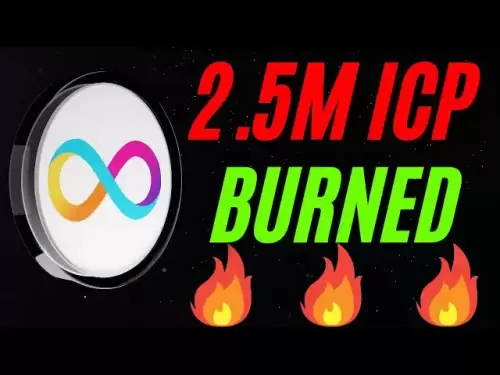-
 Bitcoin
Bitcoin $106,754.6083
1.33% -
 Ethereum
Ethereum $2,625.8249
3.80% -
 Tether USDt
Tether USDt $1.0001
-0.03% -
 XRP
XRP $2.1891
1.67% -
 BNB
BNB $654.5220
0.66% -
 Solana
Solana $156.9428
7.28% -
 USDC
USDC $0.9998
0.00% -
 Dogecoin
Dogecoin $0.1780
1.14% -
 TRON
TRON $0.2706
-0.16% -
 Cardano
Cardano $0.6470
2.77% -
 Hyperliquid
Hyperliquid $44.6467
10.24% -
 Sui
Sui $3.1128
3.86% -
 Bitcoin Cash
Bitcoin Cash $455.7646
3.00% -
 Chainlink
Chainlink $13.6858
4.08% -
 UNUS SED LEO
UNUS SED LEO $9.2682
0.21% -
 Avalanche
Avalanche $19.7433
3.79% -
 Stellar
Stellar $0.2616
1.64% -
 Toncoin
Toncoin $3.0222
2.19% -
 Shiba Inu
Shiba Inu $0.0...01220
1.49% -
 Hedera
Hedera $0.1580
2.75% -
 Litecoin
Litecoin $87.4964
2.29% -
 Polkadot
Polkadot $3.8958
3.05% -
 Ethena USDe
Ethena USDe $1.0000
-0.04% -
 Monero
Monero $317.2263
0.26% -
 Bitget Token
Bitget Token $4.5985
1.68% -
 Dai
Dai $0.9999
0.00% -
 Pepe
Pepe $0.0...01140
2.44% -
 Uniswap
Uniswap $7.6065
5.29% -
 Pi
Pi $0.6042
-2.00% -
 Aave
Aave $289.6343
6.02%
How to choose a high-security algorithm when generating a Bitcoin wallet address?
Bitcoin wallet security relies on robust cryptographic hashing (SHA-256, RIPEMD-160), key derivation functions (KDFs), and reputable wallet software. Prioritize established algorithms and open-source options for enhanced protection against attacks.
Mar 11, 2025 at 11:25 am
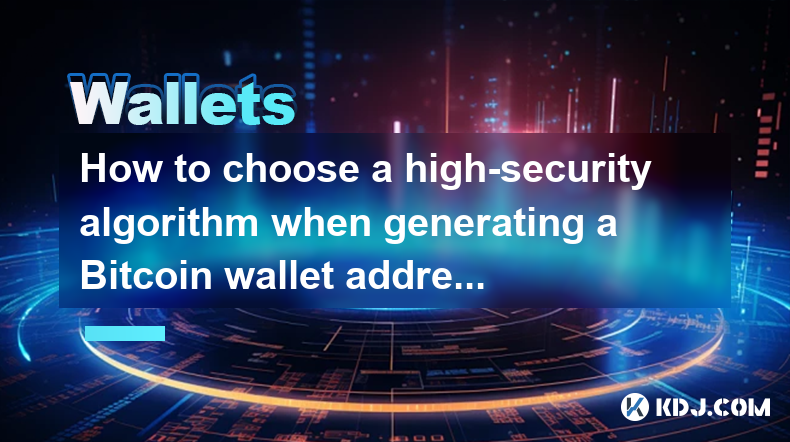
Key Points:
- Understanding the role of cryptographic hashing in Bitcoin wallet address generation.
- Exploring the security implications of different hashing algorithms.
- Examining the importance of key derivation functions (KDFs) in enhancing security.
- Evaluating the strength of widely used algorithms like SHA-256 and RIPEMD-160.
- Highlighting the significance of choosing reputable wallet software.
How to Choose a High-Security Algorithm When Generating a Bitcoin Wallet Address?
Bitcoin wallet addresses aren't generated randomly; they're the result of complex cryptographic processes. The security of your Bitcoin depends heavily on the strength of these underlying algorithms. Choosing the "right" algorithm isn't about picking one specifically, but rather understanding the process and ensuring you're using a reputable wallet implementation.
The Role of Cryptographic Hashing
At the heart of Bitcoin address generation lies cryptographic hashing. Hashing functions take an input (your private key) and produce a fixed-size string of characters (the hash). These functions are designed to be one-way; it's computationally infeasible to reverse the process and obtain the original private key from the hash. Bitcoin uses SHA-256 and RIPEMD-160 extensively in this process.
SHA-256 and RIPEMD-160: The Workhorses
SHA-256 (Secure Hash Algorithm 256-bit) is a widely used cryptographic hash function known for its collision resistance. This means it's extremely difficult to find two different inputs that produce the same hash output. RIPEMD-160 (RACE Integrity Primitives Evaluation Message Digest) is another robust hashing algorithm offering similar properties. Bitcoin utilizes both in a sequence to generate addresses.
The Importance of Key Derivation Functions (KDFs)
While hashing provides a one-way function, key derivation functions (KDFs) add an extra layer of security. KDFs take a master key (often generated from a seed phrase) and derive multiple keys from it. This is crucial as it prevents a single compromise from affecting all your funds. PBKDF2 (Password-Based Key Derivation Function 2) is a common KDF used to strengthen security.
Understanding the Address Generation Process
The process typically involves these steps:
- A strong random number generator creates a private key.
- The private key is used to generate a public key through elliptic curve cryptography (ECC).
- The public key is hashed multiple times using SHA-256 and RIPEMD-160.
- A checksum is appended for error detection.
- The final result is base58 encoded to create the Bitcoin address you see.
The Security of Wallet Software
The choice of wallet software significantly impacts security. Reputable wallets use well-vetted libraries and implementations of these algorithms, minimizing the risk of vulnerabilities. Using open-source wallets allows community scrutiny, enhancing trust and security. Avoid wallets from unknown sources or those lacking transparency in their code.
Hardware Wallets: The Ultimate Security Layer
Hardware wallets offer an additional level of security by storing your private keys offline on a dedicated device. This prevents attacks that target software vulnerabilities or compromise your computer. They often employ secure elements, specialized hardware designed to protect cryptographic keys.
Choosing Your Wallet Wisely
Selecting a high-security algorithm isn't a matter of picking a specific name; it's about choosing a reputable wallet implementation that uses robust cryptographic practices. This includes using well-established algorithms like SHA-256 and RIPEMD-160, incorporating KDFs, and prioritizing secure storage of your private keys. Open-source wallets and hardware wallets offer additional security benefits.
Common Questions and Answers:
Q: Are SHA-256 and RIPEMD-160 still secure?
A: Yes, currently, SHA-256 and RIPEMD-160 are considered secure for Bitcoin address generation. However, the cryptographic landscape is constantly evolving, and future advancements might necessitate changes.
Q: What is the role of a checksum in Bitcoin address generation?
A: The checksum is a crucial part of the process, adding redundancy to detect errors during address entry. It helps prevent sending funds to incorrect addresses due to typos or data corruption.
Q: Can I generate a Bitcoin address manually using these algorithms?
A: While technically feasible, it's strongly discouraged. Manual implementation risks errors and security vulnerabilities. Use established wallet software for safe address generation.
Q: What is the difference between a private key and a public key?
A: Your private key is like your password; it gives you control over your Bitcoin. Your public key is derived from the private key and is used to receive Bitcoin; it's safe to share publicly.
Q: How often should I update my wallet software?
A: Regularly update your wallet software to benefit from security patches and bug fixes. Check for updates from the official wallet provider.
Q: Are all Bitcoin wallets equally secure?
A: No, the security of Bitcoin wallets varies significantly. Choose well-established and reputable wallets with a strong track record and a transparent codebase.
Q: What should I do if I suspect my wallet has been compromised?
A: If you suspect a compromise, immediately secure your funds by moving them to a new, secure wallet. Consider reporting the incident to the relevant authorities.
Disclaimer:info@kdj.com
The information provided is not trading advice. kdj.com does not assume any responsibility for any investments made based on the information provided in this article. Cryptocurrencies are highly volatile and it is highly recommended that you invest with caution after thorough research!
If you believe that the content used on this website infringes your copyright, please contact us immediately (info@kdj.com) and we will delete it promptly.
- 2025-W Uncirculated American Gold Eagle and Dr. Vera Rubin Quarter Mark New Products
- 2025-06-13 06:25:13
- Ruvi AI (RVU) Leverages Blockchain and Artificial Intelligence to Disrupt Marketing, Entertainment, and Finance
- 2025-06-13 07:05:12
- H100 Group AB Raises 101 Million SEK (Approximately $10.6 Million) to Bolster Bitcoin Reserves
- 2025-06-13 06:25:13
- Galaxy Digital CEO Mike Novogratz Says Bitcoin Will Replace Gold and Go to $1,000,000
- 2025-06-13 06:45:13
- Trust Wallet Token (TWT) Price Drops 5.7% as RWA Integration Plans Ignite Excitement
- 2025-06-13 06:45:13
- Ethereum (ETH) Is in the Second Phase of a Three-Stage Market Cycle
- 2025-06-13 07:25:13
Related knowledge
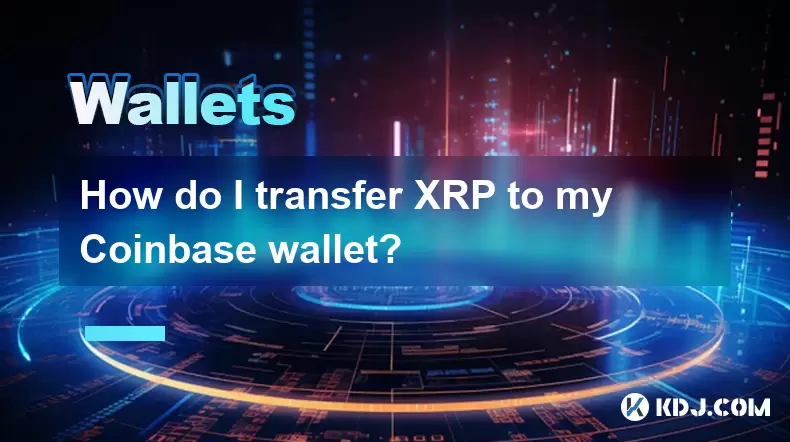
How do I transfer XRP to my Coinbase wallet?
Jun 16,2025 at 04:57pm
Understanding the Basics of XRP and Coinbase CompatibilityBefore initiating any transfer, it’s essential to confirm whether Coinbase supports XRP. As of recent updates, Coinbase has resumed offering XRP trading services on its platform after a period of uncertainty due to legal issues involving Ripple Labs. However, availability may vary depending on yo...

How do I deposit BNB into my Trust Wallet?
Jun 15,2025 at 03:56pm
Understanding BNB and Trust Wallet CompatibilityBefore initiating a deposit, it’s crucial to understand what BNB is and how it interacts with Trust Wallet. BNB (Binance Coin) is a utility token created by the Binance exchange. It can be used for paying transaction fees, participating in token sales, and more. Trust Wallet, on the other hand, is a mobile...
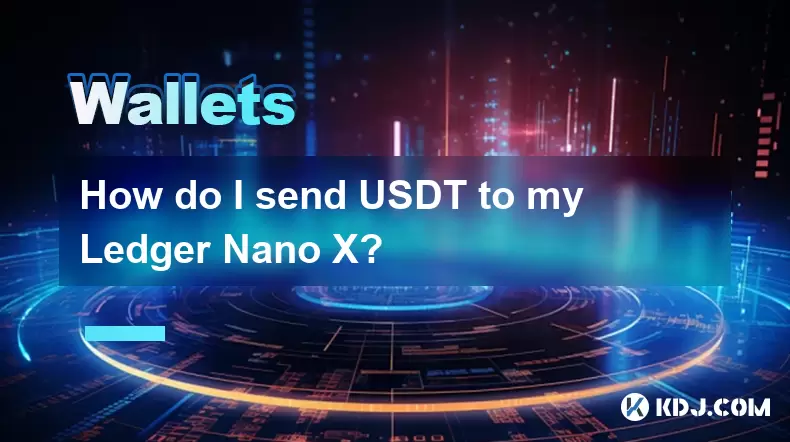
How do I send USDT to my Ledger Nano X?
Jun 15,2025 at 06:28am
What is USDT and Why Use Ledger Nano X?USDT, also known as Tether, is one of the most widely used stablecoins in the cryptocurrency ecosystem. It operates on various blockchain networks such as Ethereum (ERC-20), Tron (TRC-20), and others, offering users a digital asset pegged 1:1 to the US dollar. When it comes to storing USDT securely, hardware wallet...
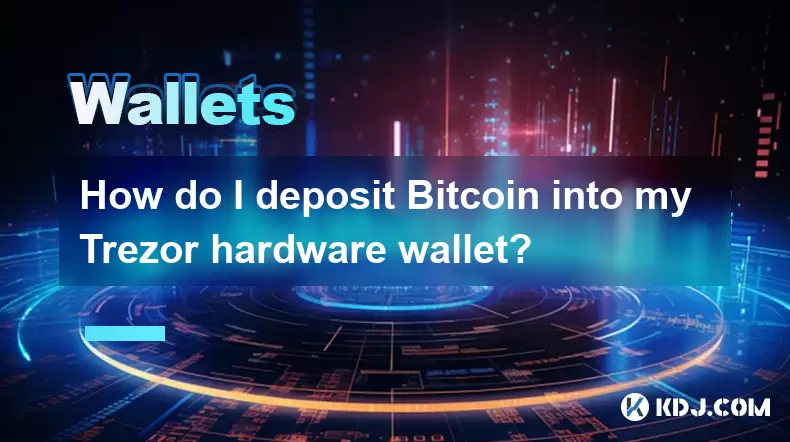
How do I deposit Bitcoin into my Trezor hardware wallet?
Jun 14,2025 at 12:29pm
What is a Trezor Hardware Wallet?A Trezor hardware wallet is a secure device designed to store cryptocurrencies offline, protecting them from online threats. Unlike software wallets, which are vulnerable to hacking and malware, Trezor stores private keys on the physical device itself. This ensures that transactions can only be approved by physically int...
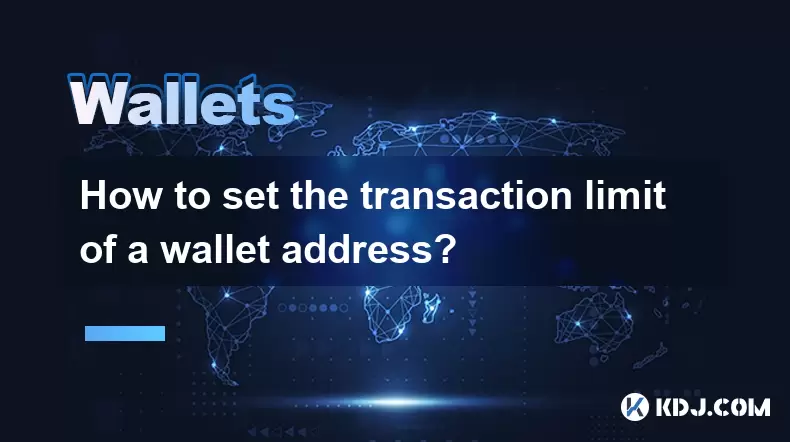
How to set the transaction limit of a wallet address?
Jun 16,2025 at 04:08am
Understanding the Concept of Transaction Limits in Cryptocurrency WalletsIn the cryptocurrency ecosystem, transaction limits refer to predefined restrictions placed on the amount of digital assets that can be sent or received by a wallet address within a specified timeframe. These limits are typically enforced by platforms such as exchanges, custodial w...
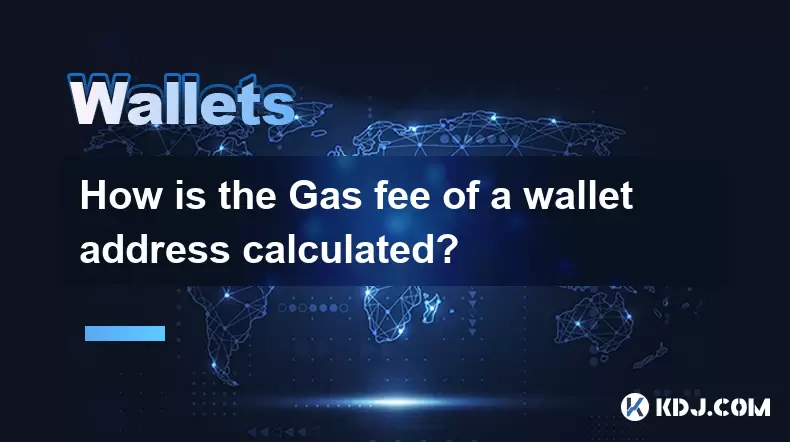
How is the Gas fee of a wallet address calculated?
Jun 14,2025 at 07:57pm
Understanding the Basics of Gas Fees in Blockchain TransactionsIn the cryptocurrency ecosystem, particularly within Ethereum-based networks, a Gas fee is an essential component of executing transactions or smart contract operations. The Gas fee serves as compensation for miners or validators who process and confirm transactions on the blockchain. It is ...

How do I transfer XRP to my Coinbase wallet?
Jun 16,2025 at 04:57pm
Understanding the Basics of XRP and Coinbase CompatibilityBefore initiating any transfer, it’s essential to confirm whether Coinbase supports XRP. As of recent updates, Coinbase has resumed offering XRP trading services on its platform after a period of uncertainty due to legal issues involving Ripple Labs. However, availability may vary depending on yo...

How do I deposit BNB into my Trust Wallet?
Jun 15,2025 at 03:56pm
Understanding BNB and Trust Wallet CompatibilityBefore initiating a deposit, it’s crucial to understand what BNB is and how it interacts with Trust Wallet. BNB (Binance Coin) is a utility token created by the Binance exchange. It can be used for paying transaction fees, participating in token sales, and more. Trust Wallet, on the other hand, is a mobile...

How do I send USDT to my Ledger Nano X?
Jun 15,2025 at 06:28am
What is USDT and Why Use Ledger Nano X?USDT, also known as Tether, is one of the most widely used stablecoins in the cryptocurrency ecosystem. It operates on various blockchain networks such as Ethereum (ERC-20), Tron (TRC-20), and others, offering users a digital asset pegged 1:1 to the US dollar. When it comes to storing USDT securely, hardware wallet...

How do I deposit Bitcoin into my Trezor hardware wallet?
Jun 14,2025 at 12:29pm
What is a Trezor Hardware Wallet?A Trezor hardware wallet is a secure device designed to store cryptocurrencies offline, protecting them from online threats. Unlike software wallets, which are vulnerable to hacking and malware, Trezor stores private keys on the physical device itself. This ensures that transactions can only be approved by physically int...

How to set the transaction limit of a wallet address?
Jun 16,2025 at 04:08am
Understanding the Concept of Transaction Limits in Cryptocurrency WalletsIn the cryptocurrency ecosystem, transaction limits refer to predefined restrictions placed on the amount of digital assets that can be sent or received by a wallet address within a specified timeframe. These limits are typically enforced by platforms such as exchanges, custodial w...

How is the Gas fee of a wallet address calculated?
Jun 14,2025 at 07:57pm
Understanding the Basics of Gas Fees in Blockchain TransactionsIn the cryptocurrency ecosystem, particularly within Ethereum-based networks, a Gas fee is an essential component of executing transactions or smart contract operations. The Gas fee serves as compensation for miners or validators who process and confirm transactions on the blockchain. It is ...
See all articles























